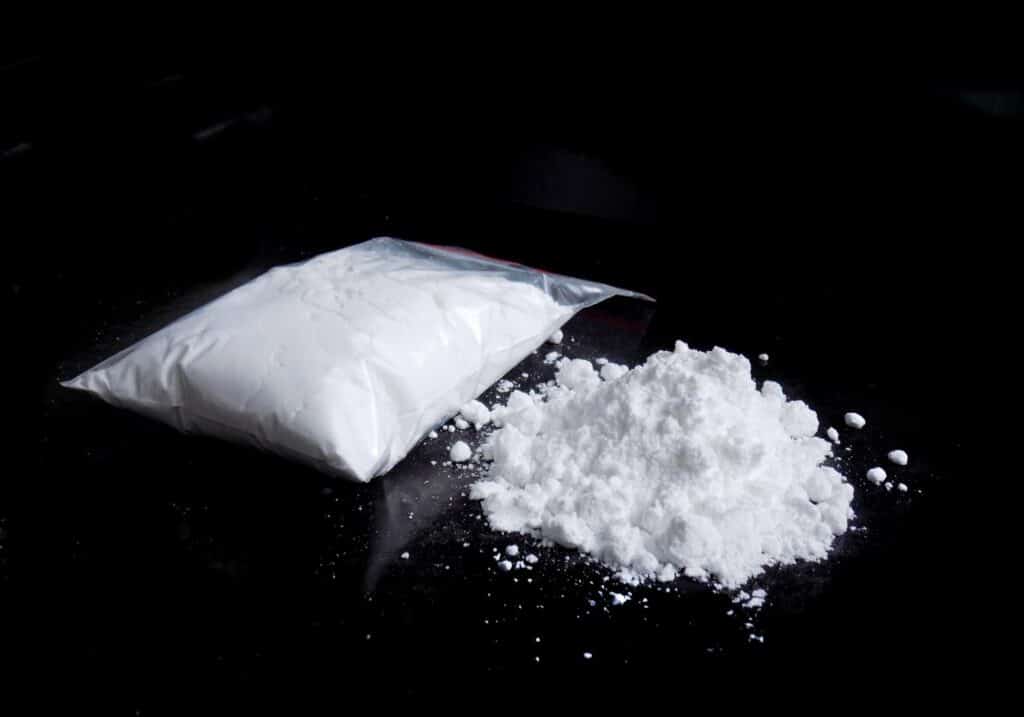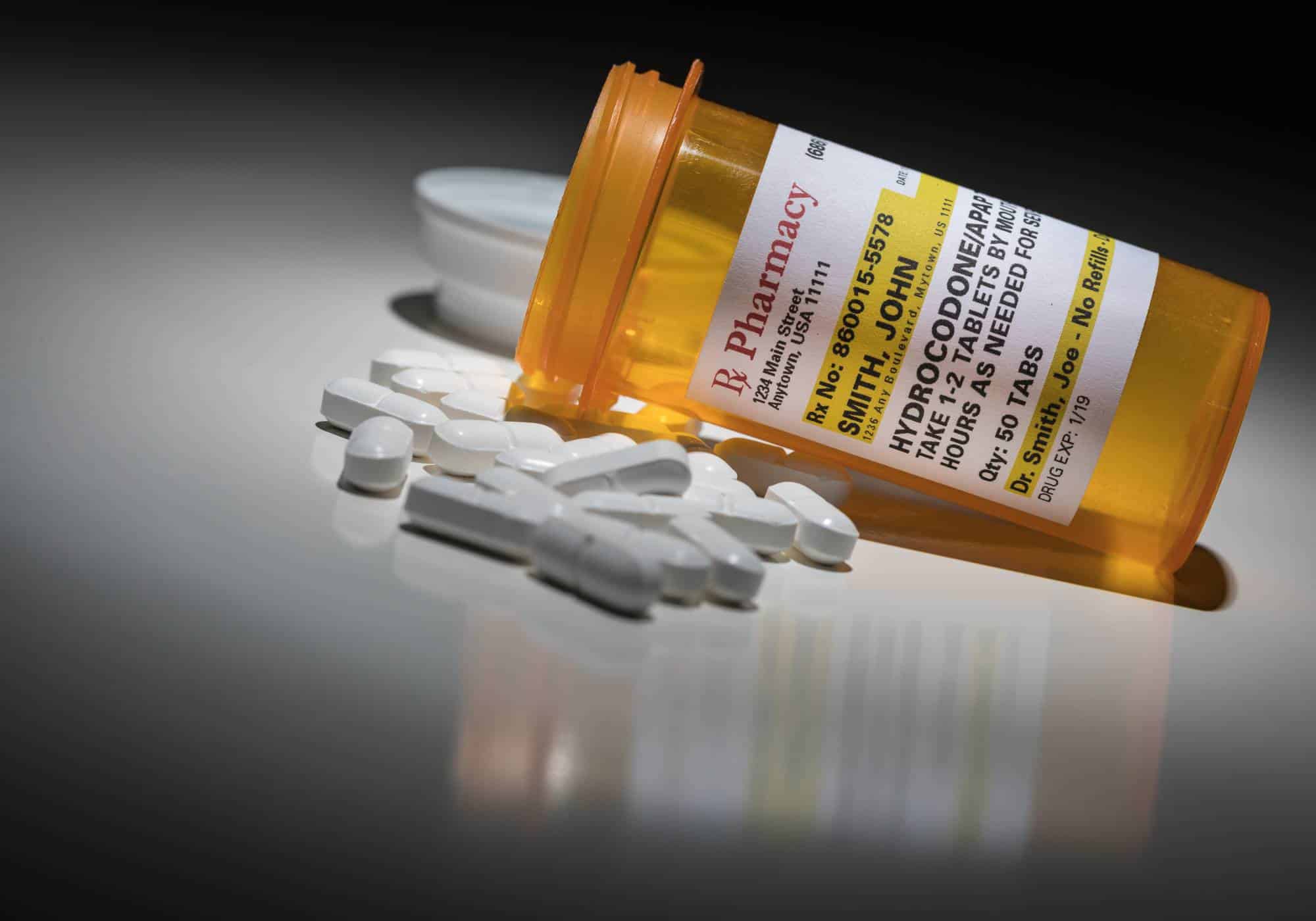Originally developed in the 1950s as an intravenous anesthetic, Phencyclidine, or PCP, is a dissociative drug that’s been historically misused for its mind-altering effects. Despite its initial medical purpose, PCP’s usage was discontinued due to severe side effects like postoperative delirium. Its effects can range from a sensation of floating, detachment from reality, to anxiety, memory loss, and altered sensory perceptions. Recognized for its high potential for abuse, PCP is classified as a Schedule II drug under the U.S. Controlled Substances Act.
Understanding the signs and symptoms of PCP use disorder is vital for those seeking help. If you or a loved one are struggling with PCP, Hope Harbor Wellness offers comprehensive PCP addiction treatment in Atlanta, GA.
What is Phencyclidine (PCP)?
Phencyclidine, better known as PCP, was initially developed as a general anesthetic but is now absent from medicinal use in the United States. The National Institute on Drug Abuse (NIDA) identifies it as a recreational drug, available in forms like tablets, capsules, liquid, or white powder. Commonly smoked, PCP can also be snorted or ingested. Often, substances such as marijuana, mint, parsley, oregano, tobacco, or other leafy plants are soaked in PCP for smoking. A marijuana cigarette laced with PCP is commonly referred to as a “dipper.”
On the streets, PCP goes by various names, including:
- Angel Dust
- Shermans
- Tic Tac
- Love Boat
- Supergrass
- Zoom
- Hog
- Peace Pill
- Rocket Fuel
- Wack
- Embalming Fluid
- Elephant Tranquilizer
- KJ
- Wet
- Crystal Joint
As a hallucinogenic drug, PCP profoundly alters a user’s perception of reality, senses, thoughts, and emotions, often leading to hallucinations. Classified as a dissociative hallucinogen, it creates a sense of detachment from oneself and the surrounding environment. PCP is not only addictive but can lead to dependence and several long-term side effects with regular use. The 2015 National Survey on Drug Use and Health (NSDUH) reported by NIDA revealed that nearly 2.5 percent of Americans aged 12 and older have used PCP at least once.

Signs and Symptoms of PCP Addiction
Identifying a PCP addiction can be crucial for seeking timely professional help. If you’re concerned about potential PCP abuse, it’s important to be aware of various symptoms that can affect your behavior, physical health, cognitive function, and psychosocial well-being. Recognizing these signs is a key step towards addressing and mitigating the issue.
Behavioral Symptoms:
- Risky use of PCP, such as while driving.
- Repeated unsuccessful attempts to quit PCP.
- Aggressive or violent behavior changes.
- Persistent use despite negative consequences.
- Spending excessive time obtaining, using, or recovering from PCP.
Physical Symptoms:
- Dizziness and elevated blood pressure.
- Heavy sweating and increased heart rate.
- Muscle spasms.
- Nausea and numbness in extremities.
- Respiratory distress.
- Vision issues and vomiting.
Cognitive Symptoms:
- Experiencing amnesia or delusions.
- Feeling dissociated from reality.
- Hallucinations.
- Difficulty focusing and paranoia.
- Poor concentration and judgment.
Psychosocial Symptoms:
- Increased aggression and agitation.
- Irritability.
- Loss of interest in previously enjoyed activities.
- Mood swings and social withdrawal.
These symptoms collectively suggest a problem with PCP abuse, pointing towards the need for professional treatment. If these signs resonate with your experience, seeking assistance from addiction specialists can be a vital step towards recovery. If you or a loved one are struggling with Angel Dust addiction, call Hope Harbor Wellness today to begin your Angel Dust Addiction Treatment in Atlanta, GA.
Symptoms of PCP Use Disorder
Recognizing PCP misuse in yourself or a loved one is crucial for seeking timely help. The Diagnostic and Statistical Manual of Mental Disorders (DSM-5, 5th edition) outlines various signs that indicate a PCP use disorder:
- Increasing the amount of PCP used or prolonging its use beyond the original intent.
- Persistent desire or unsuccessful attempts to cut down on PCP use.
- A considerable amount of time spent obtaining, using, or recovering from PCP.
- A strong urge or craving for the drug.
- Neglect of work, school, or home responsibilities due to PCP use.
- Continued use despite ongoing social and interpersonal problems exacerbated by PCP.
- Giving up important social, recreational, or occupational activities because of substance use.
- Using PCP in situations where it poses a danger, like driving or operating machinery.
- Continuing to use PCP despite awareness of physical or psychological problems it’s causing.
- Developing a tolerance, meaning needing more PCP to achieve the same effects or experiencing reduced effects with the same amount.
Recognizing these symptoms can be the first step in addressing PCP use disorder and seeking appropriate treatment. If you or a loved on are struggling with PCP Addiction, don’t hesitate and call us today to begin your PCP Addiction Treatment in Atlanta, GA.
Effects of PCP
PCP, a potent dissociative drug, alters perception and creates a sense of disconnection from one’s surroundings and self. Its effects, more intense than ketamine, can range from mild distortions in sight and sound to more severe reactions like seizures. The onset and duration of PCP’s effects vary with the method of intake and dosage. When smoked, effects appear within 2 to 5 minutes, while ingestion leads to effects in 30 to 60 minutes. These effects typically last 4 to 8 hours, though some users report lingering sensations for up to 48 hours.
Lower to Moderate Dose Effects:
- Detachment from surroundings and self.
- Numbness and blank facial expression.
- Slurred speech.
- Loss of coordination.
- A false sense of strength.
- Involuntary eye movements.
Physiological Effects:
- Increased blood pressure.
- Rapid, shallow breathing.
- Elevated heart rate.
- Higher body temperature.
Effects of Higher Doses:
- Confusion and hallucinations.
- Severe agitation at very high doses.
- Coma-like state, severe rigidity, and catatonia.
- Potential for fatal outcomes in extreme cases.
These diverse effects demonstrate the potency and risks associated with PCP use, underscoring the importance of understanding its impact on both mental and physical health

Speed and Duration of PCP Effects
The onset and duration of PCP’s effects can vary significantly based on how it’s administered and the dosage. When smoked, the effects of PCP are typically felt within 2 to 5 minutes. In contrast, if PCP is swallowed, it generally takes 30 to 60 minutes for the effects to manifest.
The Drug Enforcement Administration (DEA) notes that the intoxicating effects of PCP usually last between 4 to 8 hours. However, some users report experiencing effects for an extended period, ranging from 24 to 48 hours after use. An important factor to consider is that PCP is fat-soluble, meaning it can be stored in the body’s lipid tissues and released over time. This can lead to recurring and fluctuating symptoms for days or even months following use.
The Risks of Mixing PCP with Other Substances
Mixing PCP with other drugs can significantly increase the risks associated with its use. When PCP is used alongside depressants like benzodiazepines (e.g., Xanax) or alcohol, the combination can be extremely hazardous. Such mixtures can lead to drastically slowed breathing, potentially resulting in coma or even death due to respiratory arrest.
Furthermore, certain effects of PCP, such as psychosis and heightened agitation, might necessitate medical intervention. This can include sedation to manage aggressive behavior and ensure the safety of both the patient and those around them. The profound perceptual changes caused by PCP and other dissociative drugs can lead to dangerous situations. Users under the influence of PCP may engage in risky behaviors that they would not normally consider, like jumping from high places or acting on suicidal impulses. These scenarios underscore the importance of understanding the compounded dangers of using PCP in conjunction with other substances.
Causes and Risk Factors for PCP Addiction
According to the American Psychological Association (APA), environmental factors play a crucial role in the development of PCP abuse. Research indicates that individuals who abuse PCP often start at a younger age compared to users of other drugs. This suggests that exposure to peer groups involved in PCP abuse can significantly increase the likelihood of an individual engaging in similar substance abuse behaviors. Furthermore, studies have observed a correlation between lower levels of education and PCP abuse, implying that certain life circumstances or challenges may hinder educational advancement, potentially contributing to substance abuse.
Key risk factors for PCP addiction include:
- Gender: Females are found to be at a higher risk.
- Age: Younger individuals are more susceptible.
- Family Background: A family history of substance abuse can increase the risk.
- Mental Health History: Both personal and family histories of mental illness are significant risk factors.
- Previous Substance Abuse: Individuals with a history of abusing other substances are at a heightened risk for PCP addiction.
These insights into the causes and risk factors for PCP addiction highlight the importance of considering both environmental and personal influences when addressing substance abuse issues. If you or a loved on are struggling with Phencyclidine Addiction, don’t hesitate and call us today to begin your PCP Addiction Treatment in Atlanta, GA.
Dangers of PCP Use
PCP, when abused chronically, can lead to severe mental health issues, including a state of confused delirium or psychosis. This condition is characterized by:
- Impaired memory and cognitive functions.
- Persistent difficulties with speech.
- Agitation and violent behaviors.
- Suicidal ideations.
- Anxiety, depression, and a tendency to socially withdraw.
Such symptoms can make users a danger to themselves and others. In 2011, around 75,538 emergency room visits were PCP-related, with 72 percent of these cases involving additional substances like heroin, cocaine, marijuana, prescription pain relievers, and benzodiazepines.
Continual PCP use can also lead to dependency, with withdrawal symptoms manifesting upon cessation. These symptoms include teeth clenching, involuntary eye movements, drowsiness, diarrhea, goosebumps, muscle tremors, and seizures.
PCP intoxication often results in emergency room visits due to overdose or severe psychological impacts. Notably, deaths associated with PCP frequently occur from suicide under its influence or from accidental injuries. The gravity of these risks underscores the need for caution and awareness regarding the dangers of PCP use. If you or a loved on are struggling with PCP Addiction, don’t hesitate and call us today to begin your PCP Addiction Treatment in Atlanta, GA.
PCP Addiction and Withdrawal
The long-term effects of using dissociative drugs like PCP are not fully understood, but existing research indicates that repeated use can lead to tolerance, dependence, and a distinct withdrawal syndrome upon cessation. Additionally, PCP use can evolve into a substance use disorder or addiction, characterized by compulsive drug use despite adverse consequences.
Symptoms of PCP withdrawal can vary but often include:
- Cravings for PCP.
- Headaches.
- Excessive sweating.
- Increased appetite.
- Depression.
- Prolonged periods of sleep.
These symptoms highlight the challenges faced while withdrawing from PCP and underscore the importance of professional guidance and support for those dealing with PCP addiction.
PCP Overdose
PCP use often leads to impulsive behavior and poor self-monitoring, increasing the risk of overdose. This risk is further heightened when PCP is used alongside other substances, as judgment and decision-making capabilities are impaired.
The effects of a PCP overdose can be severe and life-threatening. Symptoms may include uncontrolled body movements, hallucinations, delusions, extreme agitation, aggression, catatonic or comatose states, and potentially fatal seizures. In cases of overdose, individuals often present in a comatose or catatonic state, or exhibit extreme agitation, delirium, and psychotic behavior, all of which are emergency situations.
Currently, there is no specific medication to reverse a PCP overdose. Medical treatment focuses on stabilizing the individual, addressing specific symptoms, and providing IV fluids. In cases where the person becomes psychotic and aggressive, antipsychotic medications may be used. If the person is in a catatonic or comatose state, life-saving measures like CPR may be necessary. Prompt medical attention is crucial in managing a PCP overdose.

PCP Addiction Treatment
For individuals experiencing an acute adverse reaction or potential overdose from PCP, the first step in an emergency department is medical stabilization, which may include physical restraint for safety. Medical care might involve interventions like reducing fever, lowering high blood pressure, and ensuring adequate breathing. Sedation with benzodiazepines can be used to mitigate psychosis, and placing the individual in a calm, dimly lit environment can also be beneficial.
Once the patient is stabilized, the treatment focus shifts to addressing the underlying PCP addiction. This includes assessing any co-occurring mental health issues, such as anxiety or depression. Treatment typically involves inpatient or outpatient rehab aimed at identifying and altering maladaptive behaviors. Lifestyle changes are encouraged to avoid triggers for PCP use, and new coping skills, like meditation or relaxation techniques, are introduced to manage cravings.
Post-inpatient care is crucial for sustained recovery. Since PCP can remain in the urine for about a week, drug testing is a useful tool for monitoring treatment adherence. Continued individual counseling, group therapy sessions, and alternative therapies proven effective during inpatient and outpatient care, like art or equine-assisted therapy, are often part of ongoing treatment.
Additionally, participation in mutual-help groups can provide invaluable support during and after treatment, offering a community for continued encouragement and maintenance of positive lifestyle changes for lasting recovery. If you or a loved one are struggling with Angel Dust addiction, call Hope Harbor Wellness today to begin your PCP addiction treatment in Atlanta, GA.









